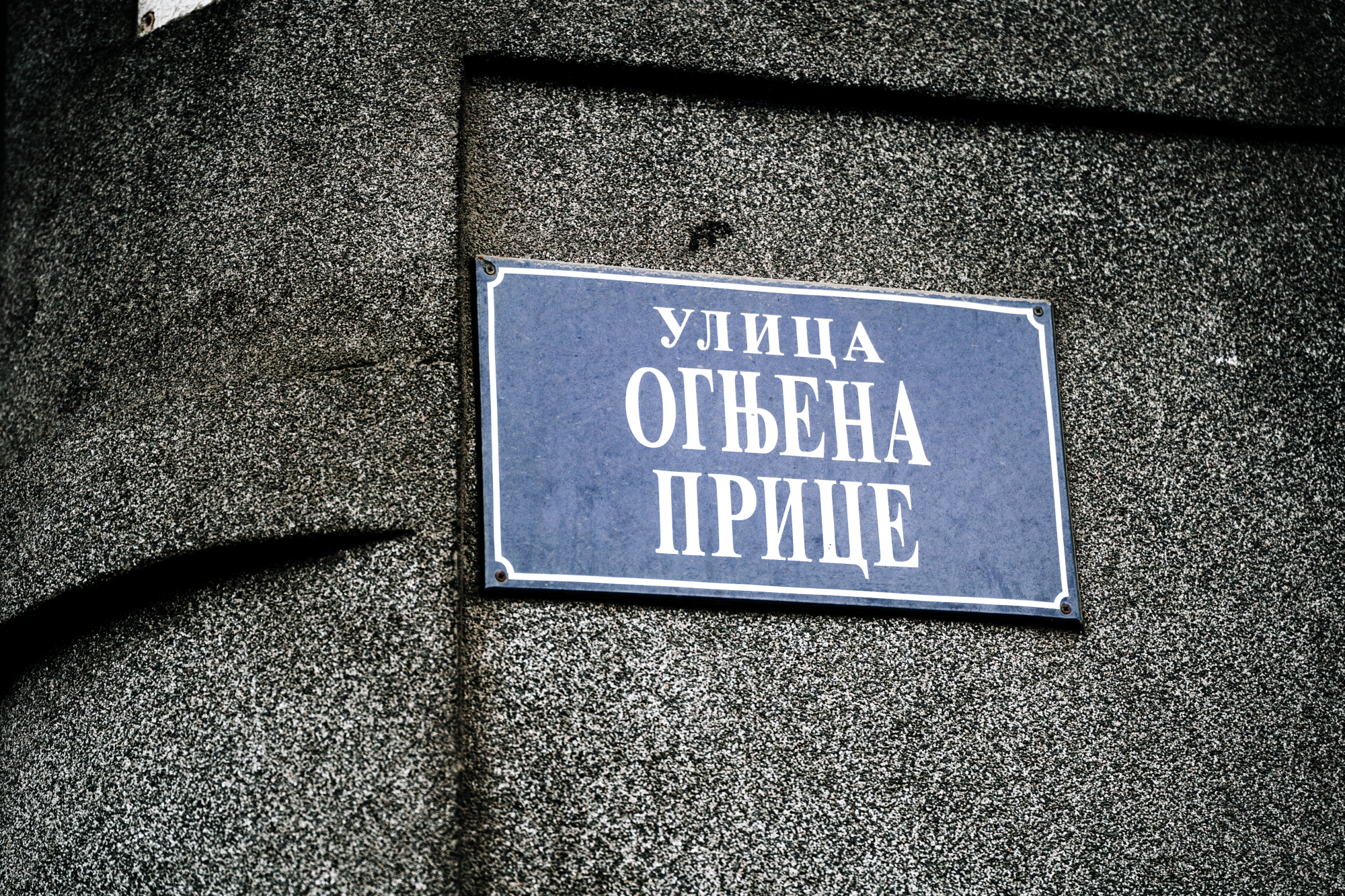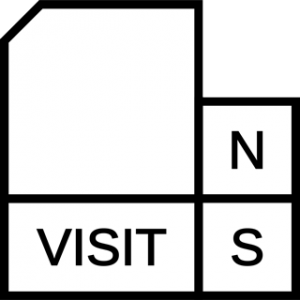A small street hid itself in the most open place possible – in the middle of Bulevar Oslobođenja, cutting it only about a few tens of metres. Ognjena Price Street is located exactly between Ćirpanova and Futoška streets. But who was Ognjen Prica and why was the street named after him?
He lived and worked semi-illegally for many years; thus, the small street in Novi Sad that has his name written on it – Ognjena Price – still exists, although it includes only a couple of buildings, and almost no one, not even taxi drivers, immediately know how to find it.
And it’s situated at the busiest location possible – in the middle of Bulevar Oslobođenja, between Ćirpanova and Futoška streets, right across Futoška pijaca (en. Futoška Market); a street that used to stretch out all the way to Novosadski sajam (en. Novi Sad Fair), now owns only a couple of buildings. Chances are it will cease to exist in case of new builds.

Until that happens, Ognjena Prica Street includes a couple of shops, a small Chinese restaurant, an exchange office, the ‘Sveti Sava’ school for elementary education of adults and a residential yard. They keep alive the memory of Ognjen Prica, who was an intellectual during his life, and who became a national hero posthumously.
He was the editor-in-chief of the newspaper ‘Borba’, while together with Božidar Adžija, he edited the magazines ‘Znanost i život’, ‘Kultura’, ‘Izraz’, ‘Književni savremenik’ and ‘Naše novine.’ Many of his works remained unpublished.
The life path of Ognjen Prica
He was born in Ilidža, near Sarajevo on 27 November, 1899. Ognjen graduated from a grammar school where he was learning German, French and Latin. He fell in love with Hegel, Marx and Engels and became a member of the Social Democratic Party of Bosnia and Herzegovina, where he was deemed the most intelligent and ‘the greatest theoretical person of the Party.’ After his graduation, Ognjen applied to the Faculty of Philosophy in Zagreb. During the time the state of Slovenes, Croats and Serbs was being formed, as a young student and a leftist, Prica worked on establishing the unique Yugoslav worker’s movement, uniting social democratic parties and creating the Communist Party of Yugoslavia. He published ‘Manifest Opozicije’ and became a member of the Communist Party of Yugoslavia, but the Zagreb police banished him to Sarajevo. However, Ognjen went to Vienna and finished his studies all the while working on the ‘Balkan Federation’ newspaper.

Upon his return to Yugoslavia, he was arrested in Belgrade. Having served his sentence, he goes back to Zagreb where he works as a math teacher for 4 years. He was fired due to being ‘politically unsuitable’, went to Zagreb and became the chief editor of the newspaper Borba – but only for a short while, since Borba was banned and Ognjen was put in prison after the establishment of the 6 January Dictatorship.
In prison, he was a teacher to other political prisoners, while at the same learning Old Greek, Italian, Spanish and Esperanto; thus, speaking almost every European language. During his time in prison, he wrote studies on Varga and Talhmaier, he translated works such as Lenin’s ‘Materialism and Empirio-criticism,’ ‘The Communist Manifesto,’ ‘History of the Civil War…’
He was allowed to live in Zagreb again after being released from prison, but with the limited right to freedom of movement. He spent his next – and as it turned out, his last – five years of life living that way
On the last night of March 1941, by order of Maček and Subašić, Ognjen was arrested together with many other intellectuals. He ended up in the Kerestinec death camp, where he was executed with a group of revolutionaries in Maksimir Park on 9 July, 1941. During the execution, he didn’t allow them to blindfold him. Instead, he screamed to his executioners: ‘Shoot, you gang of murderers!’
He was declared a national hero on 26 July, 1945.
You might also want to read: The Streets of Novi Sad: Dr. Hempt
Photo: Jelena Ivanović







